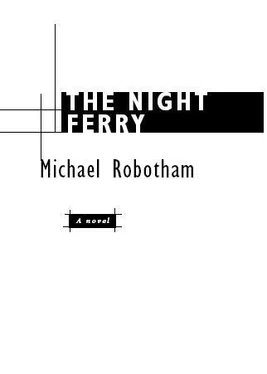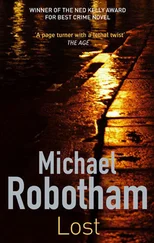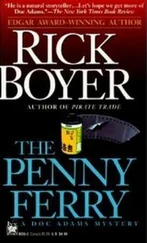I try to explain. “Sometimes children just don’t arrive. Look at Cate. She couldn’t get pregnant and it twisted her up inside until she did something foolish. Don’t you think if two people love each other that should be enough?”
“Yeah, I guess.”
He still doesn’t get my point. There is nowhere else for me to go except the truth. Words tumble out and I’m surprised at how organized they sound. Almost perfect sentences.
A woman’s pelvis is meant to expand and tilt forward as a baby grows inside her. Mine can’t do this. I have metal plates and rods holding my spine together. My pelvis cannot bend or twist. Pregnancy would put enormous strain on the disks and joints of my lower back. I risk being paralyzed and nursing a baby from a wheelchair.
He looks stunned. Desolate. It doesn’t matter what he says now because I have glimpsed his soul. He wants to raise a child. And for the first time in my life, I realize that I want one too. I want to be a mother.
In the hours that follow all possibilities are considered. On the taxi ride to the hotel, over dinner, afterward in bed, Dave talks of second opinions, alternatives and operations. We use up so much air in the room that I can scarcely breathe. He hasn’t answered my original question. The most important one. He hasn’t said if it matters.
While on the subject of true confessions, I tell him about sleeping with Barnaby Elliot and falling out with Cate. There are moments when I see him flinch but he needs to hear this. I am not the person he imagines.
My mother says the truth is unimportant when it comes to love. An arranged marriage is all about the fictions that one family tells another. Perhaps she’s right. Perhaps falling in love is about inventing a story and accepting the truth of it.
I wake in the early hours, with his heart against my back and his arm around me. A part of me wants to stay like this, not moving, scarcely breathing. Another part wants to run down the hotel corridor, the stairs, along the street, out of the city, away!
Slipping out of bed and into the bathroom, I dress in jeans and a blouse and fill the pockets of my jacket with cash and my mobile. I bend to lace my boots, accepting the dull ache in my spine for what it is, a part of me now.
Daylight is leaking over the rooftops and the streets are beginning to stir. A machine with spinning brushes seems to be polishing the cobblestones with overnight rain. Most of the windows are closed in de Walletjes, with curtains drawn. Only the desperate and the lonely are on the streets at this hour.
I wonder if this is what it feels like to be a refugee—to be a stranger in a place, despairing and hopeful all at once. Waiting for what will come next. I have never lived like this.
Hokke is waiting for me at the café. He knows about Samira. “A bird told me,” he says, raising his eyes. As if signaled, a pigeon flutters onto a branch above us.
The air inside the café is noisy with whistling steam and banging pots. Counter staff and waitresses acknowledge Hokke with waves, shouts and handshakes. He leaves me for a moment, threading his way between tables. The kitchen door is open. Bending low over sinks, scrubbing pans, are three young men who greet Hokke with respect. He ruffles their hair and shares a joke.
I glance around the café, which is almost empty except for a table of hippies who seem to be communicating in a code of clicks and clacks from their beaded hair. On her own, a young teenage girl nurses a hot drink. Waiflike and hollow-eyed, she is just the sort pimps prey upon with warm meals and promises.
Hokke has returned. He, too, notices the girl. Summoning a waitress, he quietly orders breakfast for the girl, thick toast, jam, cheese and ham. She accepts it warily, expecting there to be strings attached, and eats greedily.
His attention turns to me.
“I have to find Samira,” I tell him.
“Again.”
“Refugees have networks. You said so. You mentioned a name: de Souza. Could he help me?”
Hokke puts a finger to his lips. He leans closer, speaking out of the corner of his mouth like a prisoner under the eye of a warder. “Please be very careful when you speak such a name.”
“Who is he?”
Hokke doesn’t answer immediately. He pours coffee from a pot, tapping metal against glass. “Despite what you have read, the Netherlands is defined more by what it forbids than by what it permits. We do not have slums. Graffiti is cleaned away quickly. Broken windows are repaired. Abandoned vehicles are towed. We expect our trains and trams to run on time. We queue. It doesn’t change the people, of course, just the aesthetics.”
He gestures with a slight nod toward the kitchen. “There are half a million illegal workers in the Netherlands—Iranians, Sudanese, Afghanis, Bosnians, Kosovars, Iraqis. They work in restaurants, hotels, laundries and factories. Newspapers wouldn’t be delivered without them, hotel sheets wouldn’t be laundered, houses wouldn’t be cleaned. People complain, but we cannot do without them.”
A pipe appears in his hand. He packs it slowly, pressing tobacco into the bowl with his thumb. A match flares and flickers as he sucks in a breath.
“Imagine a person who could control a workforce such as this. He would be more powerful than any trade union leader or politician.”
“Is there such a person?”
His voice drops to a whisper. “His name is Eduardo de Souza. Nobody has more real power in this city than he does. He has an army of couriers, cleaners, drivers and spies. He can get you anything: a pistol, a fake passport, a kilo of the finest Afghani heroin. Drugs and prostitution are only a small part of it. He knows which politicians are sleeping with which girls and which illegals are looking after their children or cleaning their houses or tending their gardens. That is real power. Destiny making.”
He sits back, his soft blue eyes blinking through the smoke.
“You admire him.”
“He is a very interesting man.”
His answer strikes me as peculiar. It carries a hint that there are things he hasn’t told me.
“How long have you known him?”
“Many years.”
“Is he a friend?”
“Friendship is something I find harder to understand as I get older.”
“Will he help me find Samira?”
“He could be behind it all.”
“Why do you say that?”
“Yanus once worked for him.”
He places his hands on the table and wearily pushes himself to his feet.
“I will get a message to him.”
His pipe slips into his jacket pocket. He won’t let me pay for breakfast. The bill has been covered, he says, nodding toward the owner.
Outside it is raining again. The puddles are shiny and black as oil. Hokke offers me an umbrella. “I will call you in a few hours. Give my regards to DI Ruiz. Tell him that old policemen never die. They just miss a beat.”
Barnaby answers his cell phone quickly as if he’s been expecting a call. It must also be raining in London. I hear car tires swishing on a wet road and raindrops on his umbrella. I ask about the funerals. There is a long pause. I swap the phone between hands.
“Saturday at the West London Crematorium. They won’t release the bodies until Wednesday.”
There is another silence. The knowledge of Samira and the twins expands in my chest. Lawyers and medical ethicists can debate all they want about who “owns” the twins, but it doesn’t change the fact that Cate provided the embryos. Barnaby should know.
“There’s something I have to tell you.”
He grunts a response.
“I know why Cate faked her pregnancy. She arranged a surrogate. Her embryos were implanted in someone else’s womb.”
Читать дальше












